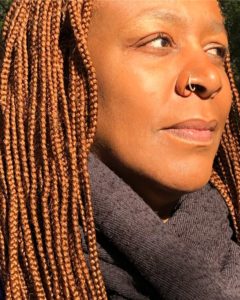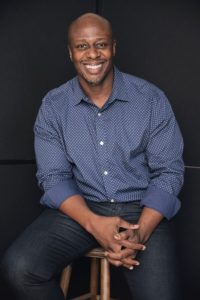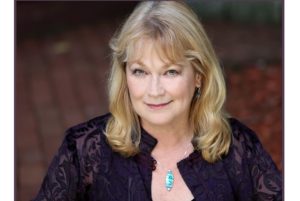Since 1994 the William & Eva Fox Foundation has made a financial commitment to the theatrical arts by funding actors through the Fox Foundation Resident Actor Fellowships. Fox Fellowships, which are administered by Theatre Communications Group (TCG), have provided more than $2 million in funds during that time to more than 300 actors, supporting their development and craft.
The 13th round of resident actor fellowships was announced in March 2019, with recipients receiving either an Exceptional Merit grant of $15,000 or a Distinguished Achievement grant of $25,000. The projects proposed by the fellows were deeply rooted in giving back to their local communities while connecting with the global community through research and travel. Their plans ranged from developing new works based on books and memoirs to learning a new language to visiting countries such as Ghana, Ireland, Rwanda, Cuba, and England.
More than a year has passed since the fellows were announced, and more has changed on a global scale due to COVID-19 than any of them could have expected. Plans for international research trips, community engagements, and new programming have been shelved, and many have shifted the focus of their projects as a result. TCG staff have worked closely with the fellows during this time, providing support and guidance. In spite of the circumstances, these theatremakers have improvised and adapted, finding ways to create through the chaos, and inspiring us all to carry on against the odds.
Dael Orlandersmith

“You know, a lot of things you just kind of took for granted, you don’t take for granted anymore,” said Dael Orlandersmith. Like everyone, her plans have changed drastically, with more upheaval in the last few months than in the year since receiving her fellowship.
She originally proposed partnering with Chicago’s Goodman Theatre on a new work “about being a mixed-race woman, and more broadly about the fight of mixed-race Irish people to be recognized as fully Irish,” as described in the initial TCG fellowship announcement. But with the pandemic came shutdowns, and a planned research trip to Ireland was put on hold. A production of Until the Flood, her one-woman show about the 2014 shooting of Michael Brown, at the Spoleto Festival USA in Charleston, S.C., was also cancelled.
So Orlandersmith reached back to a piece she had been developing for Rattlestick Playwrights Theater called Watching the Watcher. All involved parties—the Goodman, the Fox Fellowship panel, and Rattlestick—agreed to work with her in pursuing this dense and layered work as a co-production with the Goodman. The work examines the complicated relationship between what people see when looking at another person, and how what is seen and what is perceived can differ greatly. “It’s a very tough piece, but I’m actually enjoying it,” she said.
She is adapting to the influx of technology in her daily workflow: Zoom meetings and conference calls, people seeking out connections during these isolating times. It can make the writing process difficult, and Orlandersmith admits her resistance to these virtual tools, preferring that her work holds to the “skin-on-skin” experience that only live theatre can offer.
She is finding solace and escape, like many, through TV and film: documentaries like the Aretha Franklin concert film Amazing Grace (“I mean, she was in another zone”), the British gangster series Peaky Blinders, and repeat viewings of her favorite Francois Truffaut films.
And while the original idea for the fellowship is on hold, Orlandersmith full intends to return to it—and to Ireland.

Ansa Akyea
As an actor, Ansa Akyea’s nights and weekends had been previously dedicated to rehearsals and performances, with many weeks of out-of-town productions. “I don’t know if I’ve ever had a break,” said Akyea about his career. “I’m going from gig to gig to gig. And as an independent contractor, you say ‘no’ and it’s gone. That was the rhythm of my work.” Now there is time to work in the garden with his wife and share dinners with his family most nights.
Akyea’s project, partnering with the Guthrie Theater in Minneapolis, focuses on developing a new work based on the Herman Hesse book Siddhartha, and includes collecting stories from immigrant communities in Minnesota and abroad, specifically in Ghana. “My whole situation with my grant was: Start working with the Guthrie, go to Ghana, and work on this project with Siddhartha”—all while still working as an actor.
He has found it hard not to be discouraged as he’s seen theatres around the country closing and everyone in his profession losing work. “Sometimes we actors are thought of as just props or animated individuals,” Akyea said. “But I think sometimes we forget that we’re problem solvers. So this, in a weird way, is a problem for me to solve. And I’m looking at it like that, like, how can I be creative about this?”
He started looking closer to home to keep his project moving forward. Akyea, who has lived in multiple countries, including Liberia, initially reached out to his parents for their immigration story. Then he began widening his circle, finding connections in his own networks to reach out to by phone, messenger apps, or Zoom. He is taking it slow, using this time to figure out how he can utilize these technologies to keep his project moving forward. “I think professionally it’s been good because there’s a learning curve about problem solving,” he said. “So it’s almost: Okay, this is interesting to me. This is not what theatre is, but it’s gonna help me eventually get to where it needs to go.’”
Monique Gaffney

Monique Gaffney originally wanted to create a multimedia theatre piece using Immaculèe Ilibagiza’s memoir, Left to Tell: Discovering God Amidst the Rwandan Holocaust, with her host theatre, the Old Globe Theatre in San Diego, interwoven with stories gathered globally from asylum seekers and refugees. To collect these stories, Gaffney had planned a trip to Brazil, to work with the Theatre of the Oppressed, and then to Rwanda. Then the pandemic hit.
“To me there’s always a reason behind everything, whether or not I ever figure out what it is,” Gaffney said in reaction to the trips being cancelled. Putting the project on pause for a bit, Gaffney focused on caring for her mother, who is in the early stages of Alzheimer’s disease, and finishing the classes she was teaching at a nearby liberal arts college.
It was during this pause that she landed on what her next steps would be; instead of using Left to Tell and a video documentary of Ilibagiza’s story as her source material, Gaffney would pursue interviewing Ilibagiza herself. Focusing on connecting the central issues of resiliency, survival, and forgiveness, Gaffney said, “I thought I can bring it full circle to the crisis happening now. So I grew really excited about having the opportunity to talk to the woman herself. I’m on this quest right now, as we speak, to get in touch with her.”
Reinvigorated, Gaffney is facing these new challenges with support from her advisor at the Old Globe, Freedom Bradley-Ballentine, who encourages her to continue to write through these dense times. She is also finding release and relief through Afro-Cuban dance, attending virtual classes taught by Juan Carlos Blanco from the comfort of her father’s old study. “I can zone out,” Gaffney said. “I can have this, you know, moment with my ancestors. That’s what it feels like for me. I take it to that level.”
Karen MacDonald

Karen MacDonald really misses wandering the streets of Lowell, Mass. “It’s strangely beautiful,” she said of the small city, which is about a half-hour drive north of Boston. “It’s got the rivers. There’s the water and the kind of majesty of that—and then these immense industrial buildings that were built to produce massive numbers of textiles.”
Originally from the South Boston area, MacDonald had always been fascinated by those massive mills and the people who spent their days working within them. The importance of the mills to the American textile industry made the city a magnet for those seeking work, from outside the state and outside the country, creating a thriving and diverse population. It is these layers of history and cultures that drew MacDonald to Lowell, and why she centered her fellowship around it.
Though part of MacDonald’s fellowship included plans to travel abroad, her main focus was to create an original work focusing on the histories of the girls and women millworkers, layering them with the stories of contemporary Lowell citizens. She has partnered with Merrimack Repertory Theatre in Lowell, which itself holds a long history for MacDonald, who first worked there in the 1980s.
“I was originally going to be set up to do some interviews with people whose families maybe have been there for many generations,” she said. “Or perhaps they are new to the area. I’m just interested to see: What’s the story of Lowell, and what does it tell you?” She is hoping to continue this research into the past and the present once things start opening up again.
Though pandemic-related worries sometimes creep into her days, she credits the class she was teaching at the Extension School at Harvard University with buoying her spirits. The students in the Introduction to Acting class, ranging in age from teens to mid-50s, showed a real resilience in adapting to an online format, MacDonald explained. “They really rose to the challenge and they just refused to make it a bad thing, an awful thing, that we have to deal with,” she said. “So it’s those kinds of small things where you start to feel like there’s hope.”
Reynaldo Piniella

Not every research trip for the fellows fell victim to COVID delays or cancellations. Reynaldo Piniella’s trip to Cuba in December 2019 gave him a chance to immerse himself fully in a side of his heritage he hadn’t yet had the opportunity to explore.
“I was raised by my mom, a single African American mother in New York City, so I was just never around that Latino side,” said Piniella, whose background is a mix of African American and Puerto Rican Cuban. “That trip was really a chance for me to go on a journey of self-discovery, get more in touch with my roots, and find out about my ancestry.”
Piniella is still basking in the afterglow of that experience. He described the feelings of openness and generosity of spirit as having the effect of stripping away some of the jadedness that had calcified in him over time. Motivated by this, Piniella felt encouraged about the direction and scope of his project with the Classical Theatre of Harlem. His goal was to bring a bilingual (Spanish and English) production of Hamlet free to the Harlem community. The next steps of his fellowship—a trip to London and a theatre residency through the Public Theater’s Shakespeare Initiative—have been postponed.
In early 2020, Piniella was involved with Working Theater, a company that creates, according to its website, “productions relevant, accessible, and affordable to all regardless of geography or socioeconomic status,” and was about to start rehearsals with the Public Theater’s Mobile Unit, which literally brings theatre to the people throughout all five boroughs of New York City.
These in-person projects are all paused for now, but Piniella sees hope in how virtual mediums are also working to democratize theatrical arts. “We’ve been able to harness the power of Instagram, Facebook, Twitter,” he said. “I do feel like that’s part of the next frontier for theatre. There’s no replacement for being in the room, but I do feel like when we think about making audiences more diverse, more inclusive, and younger, the internet is going to be a big tool in that fight.”
This global access has benefited Piniella himself: Given his proposal of a bilingual production, he has tasked himself with learning the language to make this project possible. To do this, he attends one-on-one virtual classes with an instructor based in Ecuador. Being able to connect with and learn from someone from another culture has helped him maintain optimism and appreciation for his work.
“I think what the quarantine has given me—the gift of it, in an odd way—is the chance to slow down, the chance to reflect,” Piniella said. “We hear a lot of talk about returning to the normal, but I feel like we’re forever changed by this. I’m looking forward to the opportunity to change, to revise, to rethink our city and our communities in a better, healthier way.”
Kenny Ray Ramos

For Kenny Ray Ramos, it has been going for runs that has helped him find a form of connection in a time of fear and isolation. “It’s not just the act of running. It’s the act of connecting to the land, because I’m in my ancestral tribal homelands,” said Ramos. “But it’s also a cultural practice for my people. We have stories about running and histories of running.” Ramos is a Kumeyaay theatre artist from the Barona Band of Mission Indians, from the Barona Indian Reservation in Southern California.
Ramos is the first American Indian to receive the Fox Fellowship, and he has partnered with Cornerstone Theater Company in Los Angeles. In the first few months of his residency, Ramos worked with Cornerstone on the development of Larissa FastHorse’s Native Nation.
His professional focus did not start out with theatre. Ramos earned a B.A. in American Indian Studies from UCLA, and it was when he began working with Cornerstone that he felt his trajectory change and he started pursuing theatre professionally. Since then, Ramos has been involved with multiple companies and productions, and studied with the Theatre of the Oppressed in Brazil. His work focuses on engaging tribal communities through storytelling and theatrical practices as a way to empower and inform.
“Tribal people are so marginalized,” Ramos said. “We’re so invisible. So just the act of us uplifting our stories, uplifting tribal stories from all over the country is huge for a community that has been made to be systematically invisible to the dominant culture for centuries.” Ramos’s work on Native Nation allowed him to hone his skills as an actor, and provided an increased opportunity for creating and performing theater with and about the Native American community.
As for when the rest of his plans can happen, Ramos is as unsure as the rest of the fellows. He feels strongly that entering these Native communities and making these connections is best done in person, but fears doing so too quickly. The rapidness in which the coronavirus can spread, and its especially devastating effects on the elderly, concerns him. “I have a lot of anxiety, as I’m sure a lot of people do, about protecting that generation,” Ramos said. “But when it comes to tribal communities, those are knowledge carriers and story carriers and culture bearers. So the idea of losing that for a tribal nation, especially when you come from a small nation like myself—it’s very overwhelming.”
This entire cohort of fellow will have a chance to come together again June 2-5 for Part Two of the TCG conference, aptly titled “Convening.” Programming will take place virtually, geared toward the issues currently facing theatre. The conference itself had to reframe and restructure how it can best serve its community, not only due to COVID-19 but due to the national uprising in response to the murder of George Floyd and other Black people by police. As the website now says, “Re:Emergence will build on a legacy of resilience to issue a rallying cry, and to ensure we emerge from these dark days stronger than before. After all, our art form knows well the creative power of a pause.”
Sarah Tietje-Mietz is a Goldring Arts Journalism graduate student at Syracuse University.
"course" - Google News
June 04, 2020 at 01:52AM
https://ift.tt/305AZKv
Changing Plans but Staying the Course: Fox Foundation Resident Actor Fellows - American Theatre
"course" - Google News
https://ift.tt/35q9ps5
https://ift.tt/35rCFi1
Bagikan Berita Ini














0 Response to "Changing Plans but Staying the Course: Fox Foundation Resident Actor Fellows - American Theatre"
Post a Comment